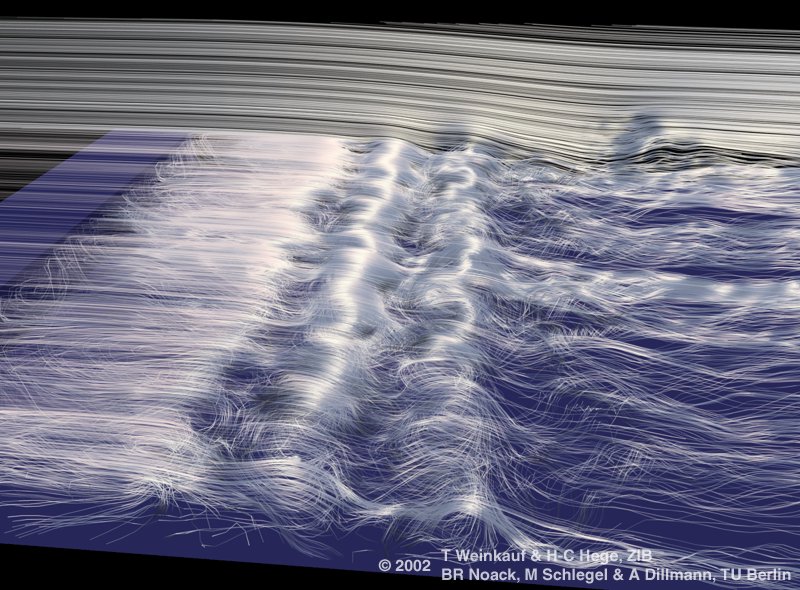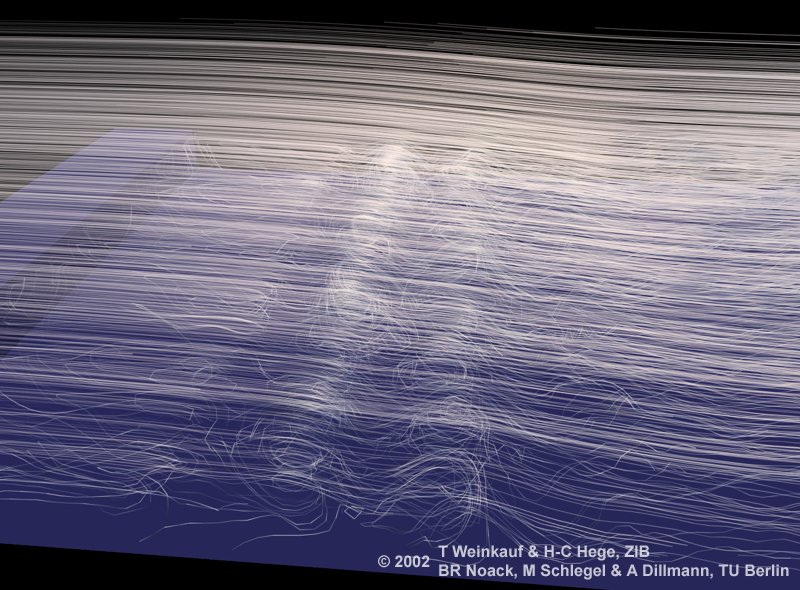Stream Line Visualization of the Flow around a Backward-Facing Step
Shear-layer vortices and secondary spanwise structures of the transitional flow around a backward-facing step have been visualized using illuminated stream lines. The scalar quantity of mean curvature has been used to influence the distribution of the stream lines.
Visualization
The data set used here represents the transitional flow around a backward-facing step.
The flow field is obtained from a LES of H.-J. Kaltenbach at Reynolds number of ReH=3000 based on step height. The corresponding boundary conditions are described in Kaltenbach & Janke (2000), Phys. Fluids.
The visualization below shows an illuminated streamline visualization of this flow field. The mean curvature field of the data set has been used to distribute the seeding points for the stream lines. The image is a winning entry from the Gallery of Fluid Motion 2003.
All images have been produced using Amira.
© 2002 by Tino Weinkauf1, Hans-Christian Hege1, Bernd R. Noack2, Michael Schlegel2, Andreas Dillmann2
1 Zuse Institute Berlin (ZIB), Berlin, supported by Indeed - Visual Concepts GmbH
2 Hermann-Föttinger-Institute of Fluid Mechanics, Technical University Berlin,
Support of Colloborative Research Center (Sfb 557) at the TU Berlin
of the German Science Foundation (DFG) under grant NO258/1-1 is acknowledged.

The stream lines are seeded at positions of very high and very low mean curvature. This supports the visual detection of shear-layer vortices and secondary spanwise structures, and it eases the understanding of the flow to a very high degree.

The reference picture: stream lines are not influenced by curvature, but seeded homogeneously over the whole domain.